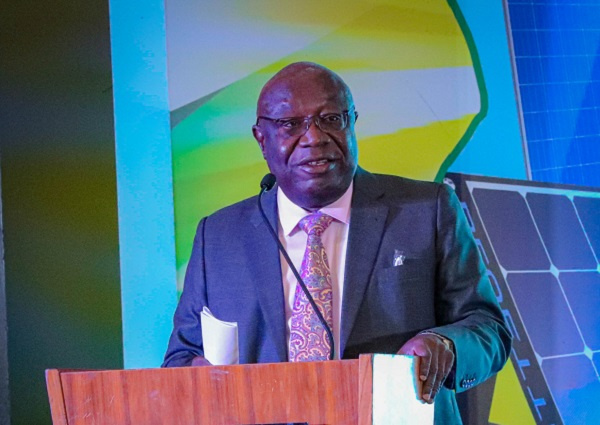Gov’t is develop a blueprint for the implementation of National Integrated E-waste Management Scheme
“some components of the scheme are the institutional and regulatory system, material flow system, E-waste management system, pricing/fee system, incentive system amongst others. This blueprint will help integrate all these components for the effective implementation of the scheme”.
- Advertisement -
The Minister of Environment, Science, Technology and Innovation, Dr. Kwaku Afriyie, has said that his ministry together with the Environmental Protection Agency (EPA), E-waste Fund, and Metropolitan, Municipal and District Assemblies (MMDAs) are being supported by international partners like the German Government, World Bank, and Swiss Government, to provide capacity through training of both formal and informal actors within the value chain to come out with regulatory and legislative options for e-waste management in Ghana.
According to the Minister, the Ministry is also working with the EPA, Fund Administrator, and other stakeholders to develop a blueprint for the implementation of the National Integrated E-waste Management Scheme, adding that, “some components of the scheme are the institutional and regulatory system, material flow system, E-waste management system, pricing/fee system, incentive system amongst others. This blueprint will help integrate all these components for the effective implementation of the scheme”.
- Advertisement -
Responding to a parliamentary question asked by MP for Keta, Kwame Dzudzorli Gakpey as to the status of E-waste management in Ghana and policy measures being put in place, Dr. Kwaku Afriyie said, the Ministry is currently piloting an incentive-based collection of E-waste at Old Fadama (Agbogbloshie) to reduce the indiscriminate disposal and burning associated with the management of e-waste.
- Advertisement -
He said, “since the commencement of the incentive payment system at Agbogbloshie in 2020, the Project has purchased over 134 tonnes of E-waste cables, 31 tonnes of mixed batteries, and 3.6 tonnes of thermoplastics. These materials would otherwise have been burnt by the scrap dealers and further polluted the environment. The Ministry is working assiduously to hand over these accumulated E-waste types to accredited recycling companies for sound recycling”.
- Advertisement -
He added that the advanced Eco Levy is the main source of Fund for the E-waste Fund. Manufacturers or importers of electrical and electronic equipment are mandated by law to pay the advance eco levy in respect of electrical and electronic equipment specified in the fifth schedule of Act 917 and the total Eco levies collected as of December 2021 amounts to GHC17, 665,169.27.
“Currently, the eco levy is still being collected on only 20% of the HS Codes being 65 out of 365 items. The Ministry, together with the EPA and E-waste Fund, has held stakeholder consultations for the rollout of the remaining items. The 100% rollout is expected to take off before the end of the second quarter of 2022. The collection of Eco levies on the Integrated Customs Management System (ICUMS) is now fully linked to the E-waste Fund under the control of the Fund Administrator”.
The Hazardous and’ Electronic Waste Control and Management Act (Act 917) and its Regulations (1.1 2250) set the background for a new and innovative strategy towards the sustainable management of e-waste in Ghana. The National Integrated E-waste Management Scheme was launched in 2018 to implement the provisions of Act 917.
By Edzorna Francis Mensah
- Advertisement -


